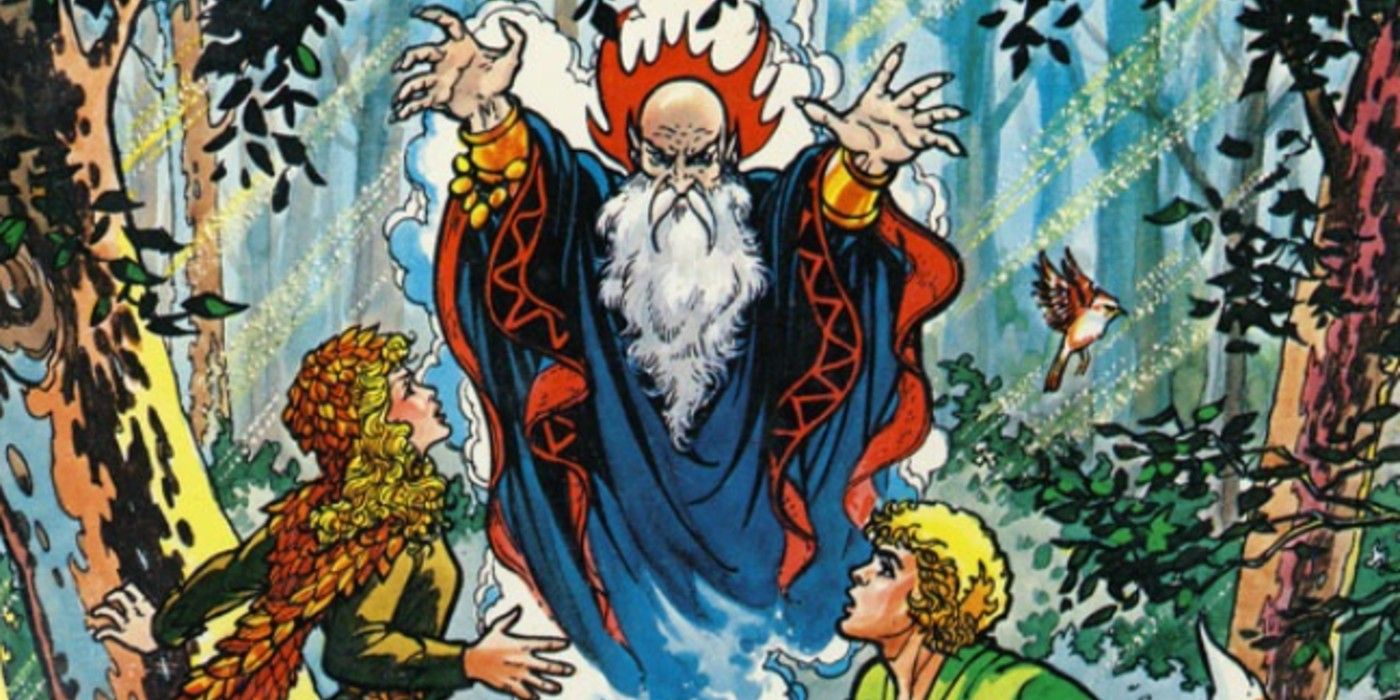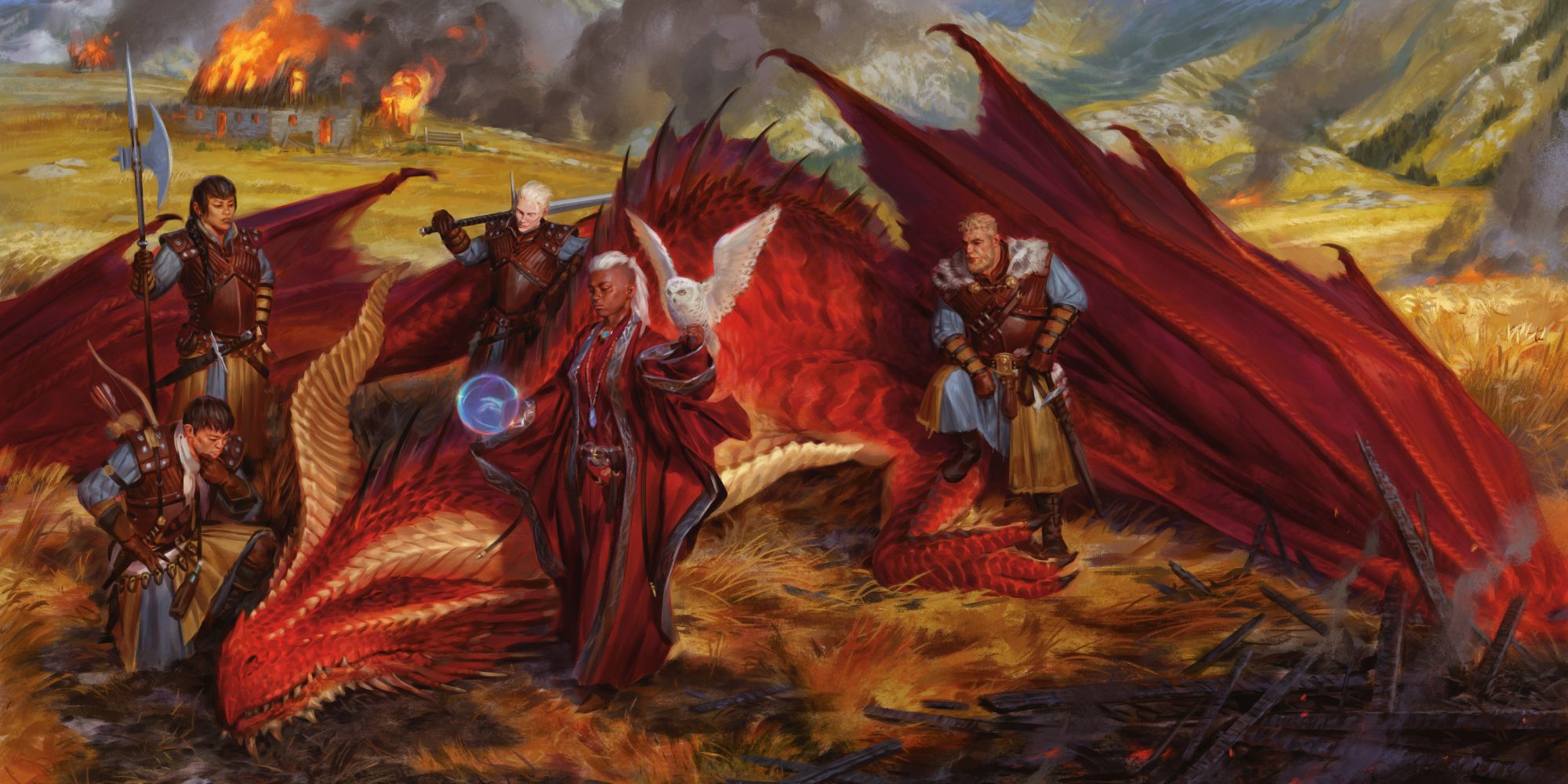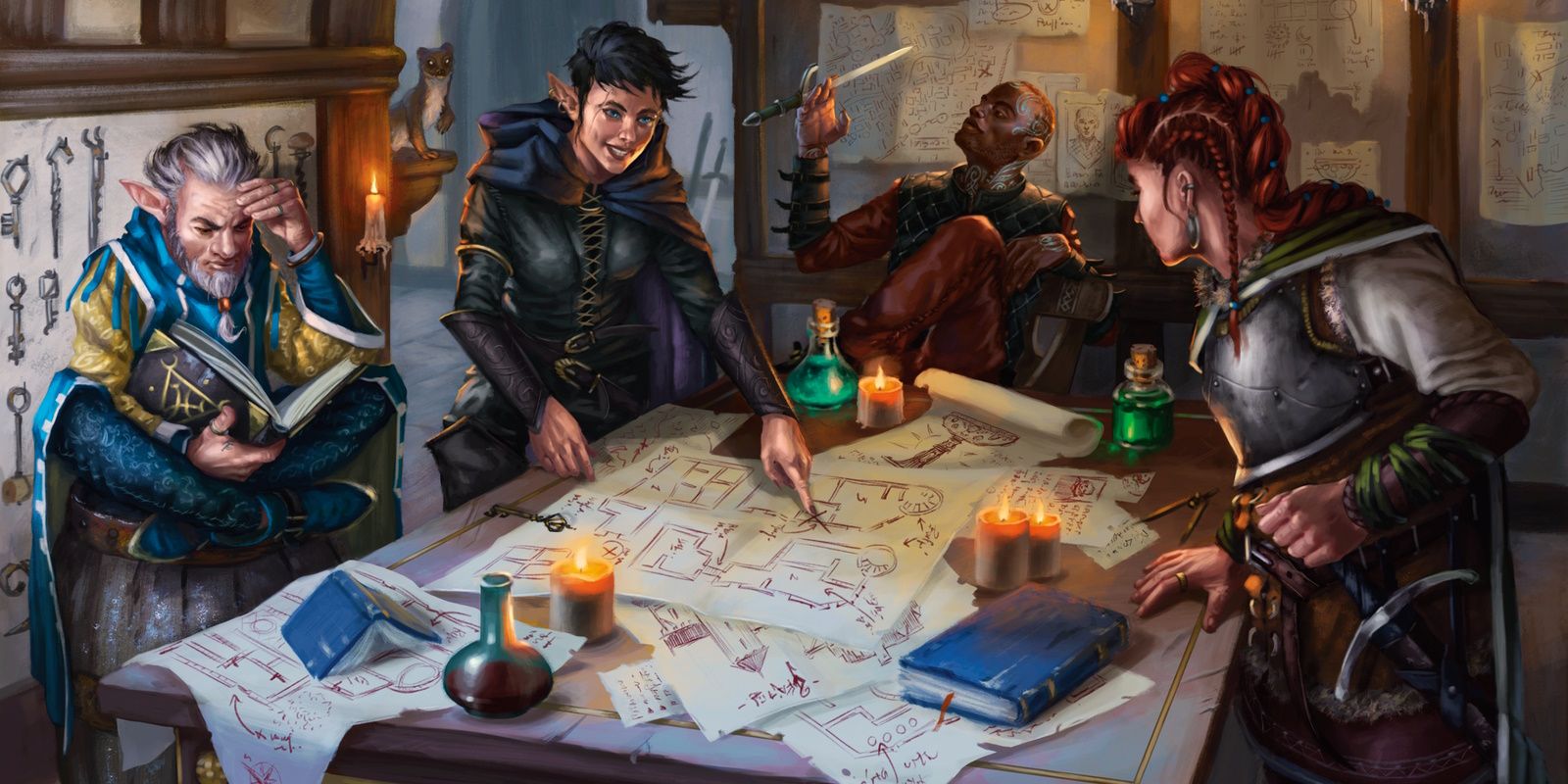
I like to “talk shop” with other people Dungeons and Dragons Dungeon Masters, but it's become clear to me that there is a fundamental misunderstanding in many gaming groups regarding the difference between a story and a series of events. Some groups see tabletop RPGs as a means for collaborative storytelling, and others are just looking for a dungeon crawling simulator. While there is no wrong way to have fun, for groups who want to tell stories and role play, Not understanding what a story is can lead to unsatisfactory and incoherent experiences at the game table. Understanding story structure will improve campaigns.
The roots of D&D had little to do with narrative, as the game focused strictly on killing monsters and looting dungeons, with little to no emphasis on context or anything other than the profit motivation for such endeavors. Tabletop RPGs have evolved and there are now journal RPGs that facilitate world-building and a host of narrative-focused games with mechanics that drive drama and characterization. Modern D&D can certainly tell epic and heroic fantasy stories, just like 3e and 4e D&Dbut If the DM doesn't realize there's more to a story than a sequence of events, it fails.
D&D can tell epic fantasy stories, with effort
Tabletop RPGs Can Easily Match the Scope of Fantasy Literature
The 5e Dragonlance differs from others D&D adventures, but Dragonlance always stood out. In 1984, the pairing of Dragonlance adventure modules and romances brought some of the epic heroics of the Lord of the Rings series for the RPG. D&D was no longer limited to a series of episodic bouts in search of gold and thrills, but a game that could tell overarching stories that dealt with the fate of nations. This model is what most modern D&D groups look, but some hope that such stories will simply emerge organically. Stories require structure, careful planning and collective storytelling effort.
Instead of watching D&D real pieces or advice videos on DMing, DMs should start by understanding what a story is. Taking a few English Literature courses can give DMs a formalized presentation of story structure, but Resources are also available for free in libraries and online. At a basic level, stories have a beginning, middle and end. They are sometimes categorized as an Inciting Event, followed by a Rising Action, a Conclusion, and a Dénouement. A central plot, or narrative, defines the subject of the story, and the main characters go through character arcs in the process, changing and growing through experiences.
A Game Master must choose the right tabletop RPG for their story, as D&D is ideal for a narrow focus on combat-centric heroic fantasy. ONE D&D campaign may have a veneer of political intrigue, or ravenloftgothic horror aesthetic, but if the story is not centrally focused on violent and epic conflicts, D&D It's probably the wrong choice of game system. When you have a story structure in mind, you I need to make sure it's a story that fits the format of a tabletop RPG. It must be flexible enough to allow player agency and the game D&Dstrengths.
A D&D sandbox without direction is not a story
Old school games can be fun, but true storytelling is rare
The problem arises when groups do not understand the basic structure of the narrative. A DM may not need to study the hero's journey of Joseph Campbell's monomyth, but he I need to know the difference between a story and an anecdote. A DM might run a session where a party goes into a dungeon looking for loot and one PC dies in a trap, another finds a secret door with a magic sword behind it, and the party kills a monster. This is a series of events, not a story. To contextualize, a YouTube video of skateboarding accident is not a story.
When a party of low-level adventurers taking risks for treasure lives or dies by the vagaries of the dice and the decisions of the players, it can be an enjoyable experience, but does not inherently meet any definition of narrative. There are many old school revivals D&D alternative systems, and these typically aim at the retrograde vibration of early forms of D&Dwhere storytelling was not part of the equation. Some have incorrectly confused these events with history. They might believe that an adventurer who critically struck an orc and emerged from a dungeon with a bag of gold contributes to a narrative.
The notion that “a story is everything the characters do” fails to recognize that a story is more than a sequence of events that follow the same people.
Simply creating a sandbox with dungeons to loot and monsters to kill doesn't provide the framework for storytelling. This allows for “events,” certainly, and many of them can be enjoyable and exciting. The notion that “the story is everything the characters do” fails to recognize that a story is more than a sequence of events that follow the same people. Stories require intentionality, and that intention must be shared by both the DM and the players. Simply chronicling the success or failure of a group's dungeon raid is no more a story than a basketball game.
D&D Players Are Authors, Not Just DMs
Players also need to understand the narrative and character arcs
A game's social contract and shared goals need to be defined in Session Zero. If Telling stories and role playing are important for the groupthe DM and players need a shared understanding of what defines a story. There are solo tabletop roleplaying games that offer creative experiences that don't require communication, but for a traditional roleplaying game it requires a collaborative effort along with collective goals regarding what you are trying to achieve. The DM may have the most burden on the narrative side of the story. The players are equally vital as they portray the protagonists the story centers on.
Players should also study narrative structure, such as Joseph Campbell's monomyth, Dan Harmon's "story circle," or any other modern narrative structure. This allows them to lean into the organically emerging narrative and character arcs of RP.
Once the group agrees that story and roleplay are important to them, the DM can prefigure the game's premise, and the players can create characters appropriate to that premise. They can define your emotional ties and motives that make the game's premise meaningful to your character. Session Zero is a good time to at least brainstorm possible character arcs and ways in which events can change a character's perspective. A character's blind spots can be defined as players take on an authorial rolecreating complex, flawed, and ambitious protagonists with room to grow and change throughout the campaign.
Characters are vital, as the protagonists of player-driven tabletop RPGs make them a unique medium for telling surprising, spontaneous stories. This keeps the DM as engaged as his players. Some D&D DMs may prefer to write novels, where they have complete control over the story's central characters, but the the collaborative storytelling of RPGs is an experience in itself. To make the most of this, a DM and his players must understand what is and isn't a story. Dungeons and Dragons'DM Guide it is not the resource for teaching basic story structure, but all DMs should master it.

